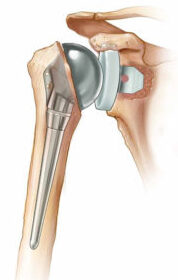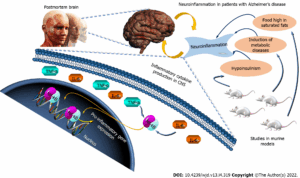In this week’s issue of The Savvy Diabetic:
-
-
-
What’s Exciting in T1D/Aging Research with Dr. Medha Munshi
- Dexcom Faces Proposed Class Action Suit Over G7 CGM Problems
-
Novo Nordisk Chair and Directors Quit After Boardroom Rift
-
GLP-1s May Offer a ‘Protective Effect’ in Shoulder Surgery for Diabetics
-
Is Diabetes Linked to Dementia?
-
Protein Powders and Shakes Contain High Levels of Lead
-
-
What’s Exciting in T1D/Aging Research with Dr. Medha Munshi hosted by T1Dto100.com, scheduled on Thursday, 30 October 2025 (times and link below).
-
-
-
-
Dementia/cognition
-
Mobility and muscle strength, including hands
-
Loss of loved ones and support system
-
Care in hospitals and facilities (and how to prepare and be safe)
-
Managing T1D and technology
-
How the aging T1D experiences hypoglycemia and hyperglycemia … and how to manage it.
-
Recommendations to the community
-
How to be involved in studies and with the research community?
-
-
-
Dexcom faces proposed class action suit over G7 CGM problems by Elise Reuter for MedTechDive.com, 20 October 2025.
 Dexcom is facing a proposed class action lawsuit over problems with its flagship glucose sensor. The complaint, filed in the U.S. District Court for the Central District of California last week, alleges that Dexcom’s G7 devices were “defective, prone to dangerous alert failures, and subject to recall” by the Food and Drug Administration.
Dexcom is facing a proposed class action lawsuit over problems with its flagship glucose sensor. The complaint, filed in the U.S. District Court for the Central District of California last week, alleges that Dexcom’s G7 devices were “defective, prone to dangerous alert failures, and subject to recall” by the Food and Drug Administration.
The complaint was filed last week by Kelly Grisoli, a parent whose child uses the continuous glucose monitor to manage Type 1 diabetes. The lawsuit alleged that Dexcom’s device did not perform as advertised and that the plaintiff “repeatedly experienced failed alerts and dangerously inaccurate glucose readings” compared to finger-stick results.
The plaintiff is seeking an order certifying the lawsuit as a class action and unspecified damages. Dexcom did not immediately respond to requests for comment.
Read more: Dexcom faces proposed class action suit over G7 CGM problems
Novo Nordisk chair and directors quit after boardroom rift by April Roach for CNBC.com, 21 October 2025.
 Several Novo Nordisk board members will step down after clashing with the controlling shareholder over the firm’s composition. The Danish pharma giant, known for its weight loss and diabetes drugs, said Tuesday that board directors and the Novo Nordisk Foundation — the firm’s controlling shareholder — had failed to reach an agreement on the future composition of the board.
Several Novo Nordisk board members will step down after clashing with the controlling shareholder over the firm’s composition. The Danish pharma giant, known for its weight loss and diabetes drugs, said Tuesday that board directors and the Novo Nordisk Foundation — the firm’s controlling shareholder — had failed to reach an agreement on the future composition of the board.
“The Board proposed a renewal focusing on the addition of select, new competencies while also maintaining continuity, whereas the Board of the Foundation wanted a more extensive reconfiguration,” said Helge Lund, chair of the board of directors. The foundation proposes that its current chair, Lars Rebien Sørensen, will also serve as the board of directors’ chair.
There was no overall disagreement on the company strategy; however, the Novo Nordisk Foundation wanted faster decision-making from the board, Sørensen said. He added that the board was too slow to recognize market changes in the U.S., and there was disagreement over how to manage the change in CEO. The foundation wanted to quickly appoint someone, while the board wanted a more comprehensive process that considered both external and internal candidates.
Read more: Novo Nordisk chair and directors quit after boardroom rift
GLP-1s may offer a ‘protective effect’ in shoulder surgery for patients with diabetes by Max R. Wursta for Healio.com/orthopedics, 17 October 2025.
 Results presented here showed patients with type 2 diabetes who used GLP-1 receptor agonists had significantly decreased rates of complications after total shoulder arthroplasty compared with patients who did not use GLP-1s.
Results presented here showed patients with type 2 diabetes who used GLP-1 receptor agonists had significantly decreased rates of complications after total shoulder arthroplasty compared with patients who did not use GLP-1s.
“The incidence of diabetes and obesity is both increasing, and currently one in seven patients on whom we perform total shoulder arthroplasty has diabetes,” Richard J. Friedman, MD, FRCSC, said. “Also, the number of TSAs performed is expected to double over the next 15 years. Therefore, the use of GLP-1s will increase in our TSA population, and we do not have a good understanding of how these drugs affect outcomes.” Friedman, vice chair of research and professor of orthopedics, physical medicine, and rehabilitation at the Medical University of South Carolina, presented the results of his retrospective cohort study at the American Shoulder and Elbow Surgeons Annual Meeting.
“When compared with diabetic patients who are not using GLP-1s, patients with diabetes who undergo TSA on GLP-1s had significantly decreased rates of various postoperative complications, both surgical and medical,” Friedman said. “This indicates that GLP-1s offer a protective effect for patients with diabetes undergoing TSA.”
Read more: GLP-1s may offer a ‘protective effect’ in shoulder surgery for patients with diabetes
Is Diabetes Linked to Dementia? Latest Evidence Revealed by Nathalie Raffier for Medscape.com, 23 October 2025.
 At the 61st European Association for the Study of Diabetes in Vienna, Austria, researchers highlighted emerging evidence linking both type 1 diabetes (T1D) and type 2 diabetes (T2D) with dementia and cognitive decline. Key questions remain unresolved, including whether diabetes directly contributes to neurocognitive disorders, whether cognitive impairment itself increases the risk for diabetes, and whether optimal glycemic control can prevent or delay the onset of dementia.
At the 61st European Association for the Study of Diabetes in Vienna, Austria, researchers highlighted emerging evidence linking both type 1 diabetes (T1D) and type 2 diabetes (T2D) with dementia and cognitive decline. Key questions remain unresolved, including whether diabetes directly contributes to neurocognitive disorders, whether cognitive impairment itself increases the risk for diabetes, and whether optimal glycemic control can prevent or delay the onset of dementia.
A 2024 study reported that the incidence of neurodegenerative diseases was 1.7-3.4 times higher in patients with T1D, with diabetic nephropathy and cardiovascular disease further increasing the risk for dementia. Brain MRI studies have also linked T1D to focal cerebral atrophy and cerebral small vessel disease.
Another presentation on dementia in diabetes came from the REVADIAB study, coordinated by Riveline, which analyzed the link between glycemic variability, circulating immune markers, and cognitive function in individuals with T1D. The researchers hypothesized that inflammatory markers could serve as sensitive subclinical indicators of cognitive function, given the higher risk for cognitive impairment in T1D — especially in those with a younger age at diagnosis, longer diabetes duration, or complications — and the known links between inflammation and cognition in other contexts.
“We found significant links between cognitive performance, including processing speed and working memory, and specific immune markers,” Riveline concluded. “Transcription factors associated with inflammation are also correlated with intellectual function, suggesting that some immune markers may reflect cognitive performance.
Read more: Is Diabetes Linked to Dementia?
Protein Powders and Shakes Contain High Levels of Lead by Paris Martineau for ConsumerReports.org, 22 October 2025.
 Over the past 15 years, Americans’ obsession with protein has transformed what had been a niche product into the centerpiece of a multibillion-dollar wellness craze, driving booming supplement sales and spawning a new crop of protein-fortified foods that now saturate supermarket shelves and social media feeds.
Over the past 15 years, Americans’ obsession with protein has transformed what had been a niche product into the centerpiece of a multibillion-dollar wellness craze, driving booming supplement sales and spawning a new crop of protein-fortified foods that now saturate supermarket shelves and social media feeds.
Yet for all the industry’s growth and rebranding, one thing hasn’t changed: Protein powders still carry troubling levels of toxic heavy metals, according to a new Consumer Reports investigation. Our latest tests of 23 protein powders and ready-to-drink shakes from popular brands found that heavy metal contamination has become even more common among protein products, raising concerns that the risks are growing right alongside the industry itself.
For more than two-thirds of the products we analyzed, a single serving contained more lead than CR’s food safety experts say is safe to consume in a day, with some exceeding 10 times that limit.
“It’s concerning that these results are even worse than the last time we tested,” said Tunde Akinleye, the CR food safety researcher who led the testing project. This time, in addition to the average lead level being higher than we found 15 years ago, there were fewer products with undetectable lead levels. The outliers also packed a heavier punch. Naked Nutrition’s Vegan Mass Gainer powder—the product with the highest lead levels—had nearly twice as much lead per serving as the worst product we analyzed in 2010.
Read more: Protein Powders and Shakes Contain High Levels of Lead



You know, in the RA community, there is a growing understanding of the challenges posed by inflammatory arthritis and aging. It is a remarkable coincidence that as we are seeing more impact of diabetes in aging, so is the effect of aging on people who need to control joint issues.
I am working with a researcher at the University of Southern Texas in Houston.
Wow, that is some news about Dexcom and Novo. I hope the G& is vindicated; no, it does not work as advertised, but there are workarounds.